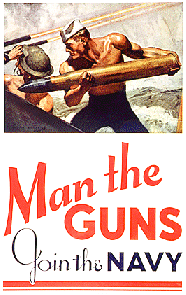February 14, 1944
Wayne R. Millington, grand president of the Native Sons of the Golden
West, called a meeting of the board of grand officers to debate the issue of
the Japanese in this country. The meeting was held at the Native Sons' Hall,
414 Mason St.
 February 18, 1944
February 18, 1944
Mayor Lapham and L.A. Mayor Fletcher Bowron named to head a
committee of California mayors to study war and post-war problems in
major cities.
February 18, 1944
OPA investigators audited the books of the War Price and Ration Board 1
at 350 California St. and found that gas ration books were missing, worth
about 3 million gallons of gas. Arrests were expected.
February 20, 1944
Green ration stamps for processed foods expired today. They are replaced
by ration tokens. Ration stamps for all other food groups expire between
now and May 20.
February 22, 1944
IRS Collector Harold A. Berliner said $188,274.23 in tax liens have been
levied against Japanese residents in Northern California since Pearl Harbor.
He said, "These people not only tried to cheat their adopted country over a
period of years, but did not hesitate to try to defraud their own race by
withholding social security taxes."
February 23, 1944
Conference at the Fairmont Hotel to coordinate victory garden activities
and increase food production on the home front.
Southern Pacific direct train service to Los Angeles resumed after a big
storm in Southern California. 100 war plants were closed by power outages
caused by the storm that killed 4.
February 24, 1944
AWVS club rooms for women Marines opened at 406 Geary St., second
floor. Rooms include lounge and library, writing rooms, kitchenette and
shower space.
February 24, 1944
OPA set new ceiling prices for fresh produce. Price of lettuce dropped 2
cents. Peas now sell for 21 cents per pound.
March 14, 1944
Deputy Police Chief Michael Riordan proposed a resolution to the Irish
problem. He urged Irish-American societies to propose that the
United States act as "guardian" of all of Ireland for the duration of the war,
after which the people would vote to choose their own form of
government.
June 1, 1944
Underground aircraft warning center in the basement of City Hall closed
along with the Pacific Coast Warning Service of the Fourth Air Force
quartered in the basement of the Pacific Stock Exchange. All Coastal Watch
stations were also closed.
June 6, 1944
Archbishop John J. Mitty ordered clergy and laity to redouble
prayers for success of the D-Day invasion. Special invasion services
were held in virtually every church in San Francisco.
July 16, 1944
Police pistol range formally dedicated at Lake Merced. It featured a 200-
and 300-yard rifle range and a 25-yard pistol range. The WPA began
construction in 1942, but it was finished by off-duty police officers when
the WPA program was suspended because of the war.
July 17, 1944
An explosion at the Port Chicago munitions center at 10:19 p.m. broke
windows in San Francisco. 322 people were killed and 1000 injured in the
worst military loss of life in the U.S. during WW II. The blast was felt as
far away as Nevada.
July 17, 1944
City to sell stockpiled Civilan Defense supplies. To be sold are gas masks,
stirrup pumps, beds and medical supplies stored at the old Washington
Grammar School.
August 14, 1944
Japanese propaganda radio broadcast,The Zero Hour, with Tokyo Rose, was clearly heard tonight in San Francisco.
October 11, 1944
Western Defense Command proclamation allowed interior lighting in
stores and taverns as long as the light is six-feet from the windows.
This included lighted juke boxes and pinball machines. Trains, however,
must continue to operate with drawn shades at night.
December 16, 1944
Hunters Point Naval Shipyard motor coach shuttle began service.
December 17, 1944
The War Dept. announced the revocation of the West Coast mass exclusion
order of people of Japanese descent.
December 24, 1944
OPA Administrator Chester Bowles announced that canned peas, corn,
green and wax beans, asparagus and spinach will be rationed beginning Jan.
1, 1945.
December 25, 1944
Latest chapter of the Jack Benny-Fred Allen feud is broadcast by Command Performance to the armed forces in the Pacific Theater. Bob Hope was the host.
Go to 1945 Exhibit.
Return to top of page.